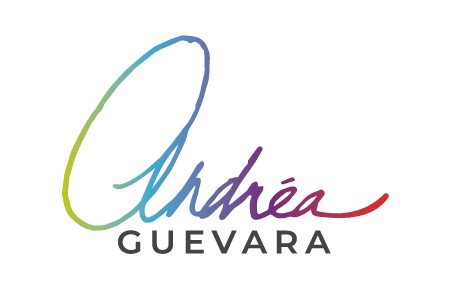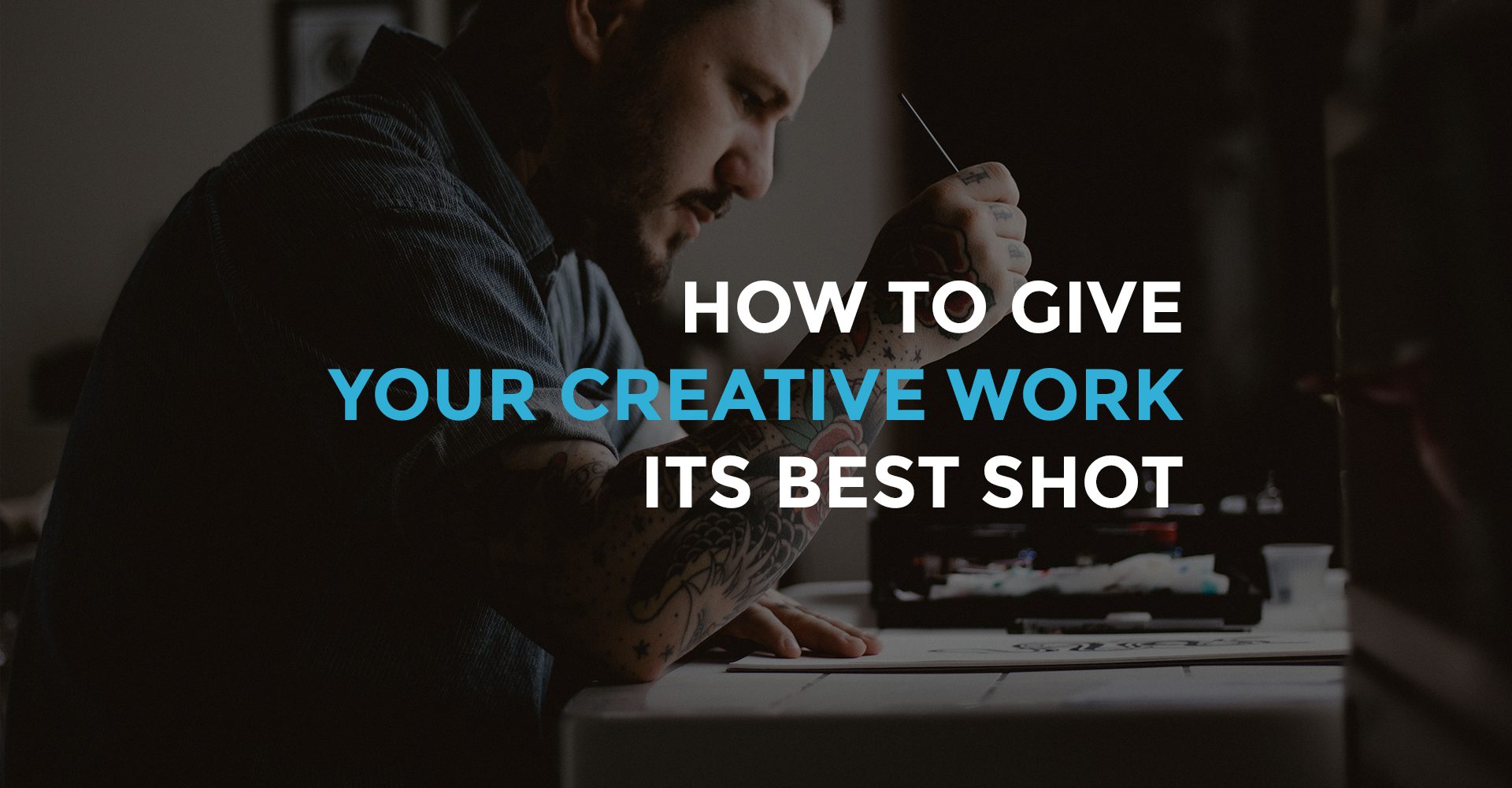How to Give Your Creative Work its Best Shot at Success
Your book, service, art, or product–should you choose to share it with the world–deserves its best shot at success. Don’t forget that.
One of the most common questions I get is, “Do I need to have a brand or online presence before I have a book?” Or if you’re not a writer, just substitute in your “products” or “services,” for “book.”
Let’s look at this chicken vs. egg conundrum via the indomitable perspective of story:
Imagine you’re about to attend a cocktail party at a colleague’s house. You don’t know anyone there, but your colleague says you’ll dig these people. You’ve been working on the final touches of your first novel all day. It’s finally finished and even the cover looks great. Then you realize it’s quarter to six and you should have left like ten minutes ago. So you throw on a t-shirt and some running shorts, swipe a brush through your hair real quick and slap on some blush.
When you arrive at the party you realize you’re woefully under-dressed. Everyone is in cocktail party attire–little black dresses and button down shirts.
Crap that’s right it’s a cocktail party, you think, well here goes nothing. You walk in and say hello to your colleague Jane, who tries to mask her shock at what you’re wearing with a meager smile.
“You do know this is a cocktail party right?” she whispers in your ear as she gives you a quick hug.
“Of course, I just didn’t have time; I was finishing my book.”
“Oh well…uh, that’s great!”
“See!” You hold it up in front of your chest like it’s a medal.
“Oh you brought it with you?!” She laughs awkwardly and congratulates you on your accomplishment. Feeling a boost–after all you just finished your entire frickin’ book–you walk over to a friendly looking gay couple and introduce yourself.
“Hello, I’m Lucy, a friend of Jane’s. And this is my newly finished book!” Again you hold it out, this time like Vanna White. “It’s sci-fi. Would you like to buy a copy? It’s really great.”
The two men shoot quick looks of shock at each other, but as polite humans they feign mild interest and say pleasantries, but really they’re thinking Who the hell is this, and who does that? I don’t even like sci-fi novels. Also, where’s the shrimp scampi?
You sense their waning interest and move on to someone else who will surely want to buy your new book.
Of course, you wouldn’t actually do this in real life. But when you go out into the world with a book but no real brand, you’re basically doing the same thing. You’re essentially going into a world where no one knows you, what you stand for, if you have any talent, or if your work will be any good, and begin barraging people with requests to read or buy your book.
Most people are not going to succeed using this method. Or at the very least, they’re entering the room at an extreme disadvantage. I mean, would you like this? Surely you’ve even experienced the receiving end of this kind of tactic. I know I have.
Consciously branding yourself before you have something to SELL is more like spending some time to make sure you’re appropriately dressed for the party (maybe you even have a conversation starting accessory), you’re showered and clean, your hair got did, maybe even your nails too. And you leave your book at home, but you bring your well-designed business card. You have more natural conversations with the other guests, finding out what they’re interested in, how you might help each other in your careers. You might even talk about the book you’re writing when they ask you what you do, but you don’t try to sell it to them (yet). You make sure you stay connected, if they want to be. And you do something nice for them, or give them some useful information, or the phone number of that reliable, honest mechanic you know. You act like a decent human being, not a book-hawking automaton in running shorts.
I’ve said it many times, but let me reiterate: branding doesn’t mean creating some bullshit persona, it’s clarifying the strengths, gifts and vision you have for your career and life while also identifying WHO you’ll help and HOW you’ll do it (whether that’s a book, massage service, or paintings, or whatever), so you can live within the bounds of your best self and attract the people who will help you or who need you (and your work).
Taking the time to craft a brand and introduce it to the world before you have your work all dialed-in requires self-knowledge and forethought.
If you swoop in out of nowhere and have no backstory you’re not going to be a sympathetic character. It’s going to be a lot harder for people to give a shit about who you are and what you’re selling.
Of course there are always exceptions, but let’s get real, better to plan for the hardest, most-likely path and be pleasantly surprised if it works out to be easier, than the other way around, right?
These days agents and publishers are looking for two things. As my friend Monica Odom, literary agent extraordinaire said during our recent online workshop:
“Before you pitch or query an agent, know your work and know your brand.”
Of course, you must have a really good story and execution–don’t think I’m suggesting otherwise–these are crucial to your work, unless pf course you’re already an overnight viral internet sensation. So if all you have bandwidth for is writing your book, then do that for now. But know that the time will come where you will need to set aside time to work on your brand as well. Ideally, before your book launches. This is especially true for those who go down the self publishing route as you will not have an established publisher backing you; while this route does grant you total creative freedom and control over your own work, it does mean that its success is also down to you.
All writing being equal, the author who has a brand to support sales of their book(s) will win the bigger deal and get more support from their agent, publisher, and readers.
Over and over, through my work with various authors, agents, and editors, I’ve found that publishers are looking for not just an irresistible idea but a partner to help sell it to the world.
I know how daunting and discouraging this can seem. Even with a background in branding and marketing, I sometimes still get overwhelmed by the thought of promoting myself. Not because it’s awful, but simply because I know the creative writing side of my brain operates much differently than the marketing side. It takes work to switch gears, no doubt.
And life gets busy. Like real busy.
But I’ll tell you a secret: Once you establish the foundations of your brand and parse out a general strategy that works with who you are, it gets more exciting and less overwhelming.
Branding is kind of like writing a book–if you think about the end product too much you’ll get buried under the enormity of it all. But if you break it down to the most important concepts, the themes, the characters, the settings, and commit to a schedule–even if you can only spare a couple hours a week–you’ll begin to see the power of the results you can achieve.
Baby steps, my friends. Either that or hire help if you can.
In your brand story you are the protagonist, the hero of your career, so you must show people why they should care about the stories you’re building.

Photo by Jacalyn Beales on Unsplash
If you still doubt me, here are just some of the ways a consciously-created brand can help your writing (or creative) career:
- Actually getting the book deal because you have an edge over less prepared authors
- Getting a bigger-better ($$$) book deal because you’ve helped the publisher see the potential in your brand and work
- Sell more books to your already building audience
- More promotional opportunities will popup because more people are aware of you and how awesome your work is
- More people will genuinely want to help promote your book(s) by reviewing it, telling friends, helping you with connections
- Better connections with colleagues who can help you with publicity, bylines and the readership you need because they understand the value you bring
Where to Start
When it comes to branding, most people instinctively start with their visuals, logo, or website, or even social media, but that’s like creating a book cover without writing the book. This is the wrong approach.
It all starts with you and the story you want for your career–your ultimate vision. Ignore the temptation to jump on the pretty stuff and do the internal work first. Remember, the story is the most important thing, so you need to know what the hell you want the story of your brand to look like before you can tell it properly.
What Creating a Brand looks like, using an adapted Hero’s Journey model:
Before you read this, remember it’s the overview so don’t get overwhelmed, each step should be broken down into bite-sized pieces. This is not possible in one blog post, this is something I do in my online branding course and one-on-one with clients.
- Happy Ending/Vision: Start at the end. It’s important to understand what your end game comes first when you’re planning. Decide what you really want for your life and career. Even if you are having trouble visualizing what your career would look like after your first book, focus what you want that book launch and the aftermath to look like. It’s okay to not to have all the answers, but it is essential to at least strive for an understanding of what you truly want–even if that’s not super specific at this point.
- The Hero and her Conflict: This is where you get to know the character, what you’re good at (your strengths) and areas where you’re not so strong (things you don’t have the knowledge in or struggle with), your values, and what makes you unique. It’s important for you to understand who you are–so you can base your brand on that and not a fleeting thing like a product or book.
- The Mentor: Learn how to create your brand consciously. You will need help. You find some info online for free (there are even some here on my site), sign up for my email list, or read books, etc. Or if you’re ready to get the bite-sized guidance start-to-finish, sign up for my online course.
- The Quest: Start brainstorming ideas based on what you’ve learned about yourself, your work, and your ideal readers, for marketing strategies, design, social media, events, etc.
- The Challenges & Temptations: There will be setbacks, or challenges, the most common of which is your own motivation to get things done. Familiarize yourself with these and always look for tools to overcome. Don’t let these biatches keep you from the career and life you want.
- Taking Action, Building Toward the Climax & Denouement: Figure out how much time you can carve out for building your brand and slap deadlines on those tasks. Work consistent brand-building into your life and you’ll see the results begin to build over time.
To get you started on the brainstorming aspect of creating a broad overview of your own strategy using the above mentioned formula, which is essentially the first step, download my free worksheet to help you visualize this process and get started on building your brand.
Free Printable: Hero's Journey Brand Worksheet

Become the Hero of Your Own Creative Career--whether you're a writer or author, this worksheet is a great first step!
Create Your Brand, Hero's Journey Style worksheet




